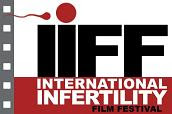Consequences of naming known donor on Birth Certificate in Australia
Both ‘parents’ are expected to sign a birth registration form. If you decide to name the donor on the child’s Birth Certificate, he must sign the registration form.
If you decide not to name the donor, you may have to give the Registrar of Births, Deaths and Marriages a Statutory Declaration either saying that the father is unknown or explaining the circumstances.
The Registrar has been known to refuse to issue a Birth Certificate if you say that you have used a known donor, but not through a clinic, and you do not wish to give the donor’s name. If you have conceived through a donor program run by a clinic, you can give the Registrar a letter from the clinic to prove that there is no legal father.
Paternity for inheritance purposes
Naming a known donor on the Birth Certificate automatically establishes kinship.This gives the child inheritance rights if the donor dies. (The same outcome can be achieved if the donor names the child as beneficiary in his Will.)
Social security
Centrelink policy is that the biological mother is not eligible for social security unless she first tries to get child support from the father named on the Birth Certificate, even though the law is clear that a donor is not liable for child support.
If Centrelink insist on this, even after you tell them it was self-insemination, you can appeal to an authorised review officer and then the Social Security Appeals Tribunal.
Passport
A father registered on the Birth Certificate is required to give his consent (by signing the application) before the child can get a passport.
Responsibility for child support
Two court cases (NSW Supreme Court in 1995 and Family Court in 1996) have decided that if a man isn’t the married or de facto husband of the biological mother of a child conceived by artificial insemination, then he is not the child’s ‘parent’ under the Child Support (Assessment) Act 1989 (Cth) – even if he is named on the Birth Certificate. Therefore he can’t be ordered to pay child support by the Child Support Agency.
This view was confirmed by the Family Court in a 2002 case.
Parenting Orders
There are four types of parenting order:
- Residence order – who the child will live with.
- Contact order – what contact the child will have with a parent or other significant person.
- Specific issues order – any other aspect of day-to-day or long-term parental responsibility, e.g. religion, medical treatment, education, extra-curricular activities.
- Maintenance order – not often used as most children are now covered by the Child Support Scheme instead, but can be used for children over 18 who still need financial support.
An application can be made by anyone who is ‘concerned with the care, welfare and development of the child’. This includes a non-biological parent and a known sperm donor.
http://over-the-rainbow.org/main/topic9_6.htm#9_6_4_0





0 Comments:
Post a Comment
<< Home